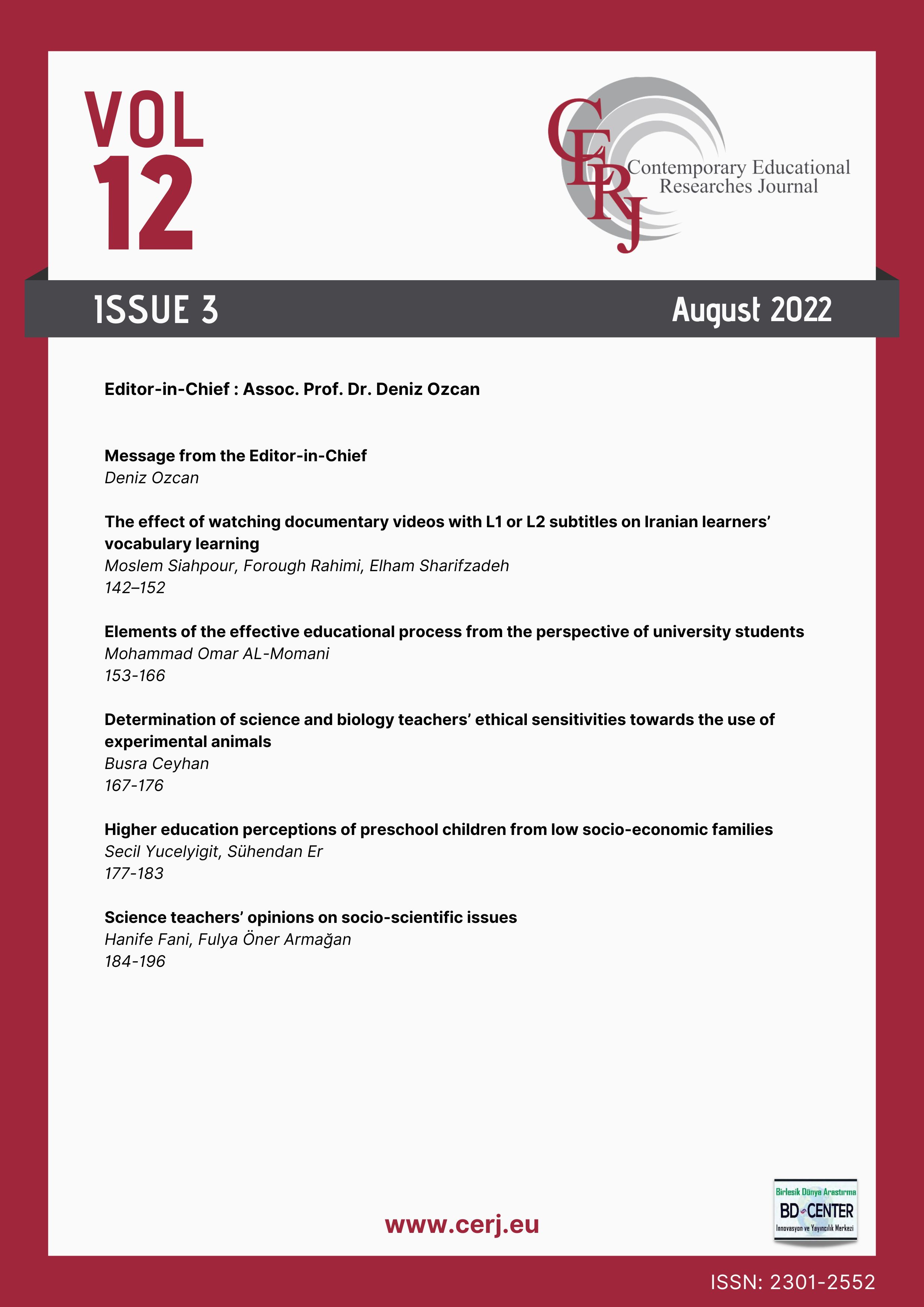Science teachers’ opinions on socio-scientific issues
Main Article Content
Abstract
Socio-scientific issues take their content from situations that can be encountered in daily life. Therefore, teaching these subjects is among the important aims of science education. This study aims to determine the views of science teachers on socio-scientific issues. The study was carried out with 26 science teachers (18 women and 8 men) working in schools affiliated with the Ministry of National Education in the city centre of Kayseri in the 2020–2021 academic year. Open-ended document questions were used as a data collection tool in the study. Content analysis was used in the analysis of the qualitative data obtained in the study. It was concluded that some science teachers did not take any courses related to socio-scientific issues and their teaching in education faculties during their undergraduate education, while the content of existing courses only provided information on some socio-scientific issues.
Keywords: Science education, science teachers, socio-scientific issues;
Downloads
Article Details

This work is licensed under a Creative Commons Attribution 4.0 International License.
Authors who publish with this journal agree to the following terms:
- Authors retain copyright and grant the journal right of first publication with the work simultaneously licensed under a Creative Commons Attribution License that allows others to share the work with an acknowledgement of the work's authorship and initial publication in this journal.
- Authors are able to enter into separate, additional contractual arrangements for the non-exclusive distribution of the journal's published version of the work (e.g., post it to an institutional repository or publish it in a book), with an acknowledgement of its initial publication in this journal.
- Authors are permitted and encouraged to post their work online (e.g., in institutional repositories or on their website) prior to and during the submission process, as it can lead to productive exchanges, as well as earlier and greater citation of published work (See The Effect of Open Access).
